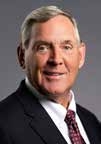By Todd Ebert
Tenth annual review finds GPOs score high in ethics, compliance issues
Healthcare group purchasing organizations are critical cost-savings partners to America’s acute and non-acute care providers – negotiating with manufacturers, suppliers, and distributors for the best price and value of goods and services. In addition to providing billions in savings to customers on medicines and supplies, GPOs also help reduce provider costs by eliminating the need for costly internal sourcing functions. With over 98 percent of U.S. hospitals utilizing a GPO, the industry takes seriously its responsibility to be ethical and transparent, and engage in business best practices.
In order to provide rigorous independent oversight of the healthcare supply chain, 10 years ago, several leading GPOs came together to form the Healthcare Group Purchasing Industry Initiative, or HGPII. Made up of eleven GPO member companies today – including all members of the Healthcare Supply Chain Association – HGPII was born out of the belief that the healthcare supply chain industry would be made stronger by developing its own best practices and adopting new standards of transparency and ethics.
 The Initiative works to provide oversight of business practices within the industry, review and set standards, identify issues and vet grievances relating to best practices, and provide public review of decision-making in the sector. It also has an independent advisory council comprised of nationally recognized experts in the field of ethics, which explores ethics and compliance issues, and what it means for a GPO to have a culture of ethics.
The Initiative works to provide oversight of business practices within the industry, review and set standards, identify issues and vet grievances relating to best practices, and provide public review of decision-making in the sector. It also has an independent advisory council comprised of nationally recognized experts in the field of ethics, which explores ethics and compliance issues, and what it means for a GPO to have a culture of ethics.
In March, HGPII marked a decade of operation by releasing its annual report, a national survey of GPO business practices, which found that all GPOs surveyed are providing high levels of transparency in their contracting processes and are adhering to strict codes of conduct to promote business ethics.
According to the report, GPOs are actively promoting the availability of new, innovative technologies in the healthcare marketplace, and consistently sponsoring programs to encourage greater diversity in the supply chain by promoting firms with minority ownership and actively recruiting talent of diverse backgrounds. The report also found that GPOs are sustaining a strong ethical culture across their purchasing activities, using both public standards and internal controls.
The report goes on to reveal that the vast majority of GPOs maintain an administrative fee of 3 percent or less, and that those with higher fees disclose those amounts in conformance with GPO Safe Harbor regulations. Additionally, every member GPO is actively promulgating and enforcing a code of conduct intended to ban conflicts of interest, or their appearance, as part of employee orientation and yearly training sessions. GPOs are also offering independent grievance processes for vendors through the American Arbitration Association.
HGPII National Coordinator and former Representative Phil English (R-Pa.) said about the report: “This report is a milestone in the ten-year history of HGPII that demonstrates that our members are rigorously adhering to their stated commitments to high standards of ethics, procedural fairness, and professionalism in providing their health service customers real savings through group purchasing. Our review of the current business practices in the supply chain — based on comprehensive surveys and detailed direct interviews with people making the contracting decisions — demonstrates that HGPII participants are continuing to make solid, measurable progress in applying world class standards to the challenge of leveraging healthcare savings from a competitive market while maintaining quality.”
The HGPII report is the product of an ongoing process that involves an individual commitment from each member organization. HGPII is managed as an independent institution by Arent Fox LLP, with oversight by key industry leaders.
Healthcare group purchasing organizations work hard to ensure our industry is efficient, transparent, and ethical. Doing so ensures that value and cost-savings are passed onto providers, who in turn can focus their efforts on providing top-quality care to patients.
Todd Ebert, R.Ph., is the President and CEO of the Healthcare Supply Chain Association.

